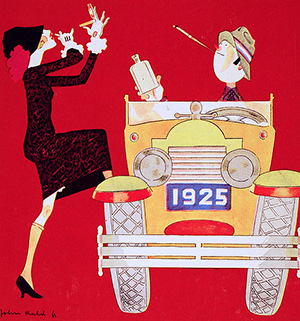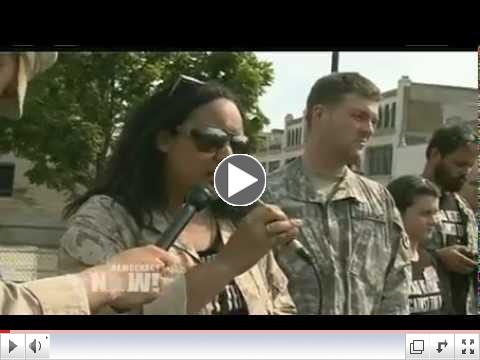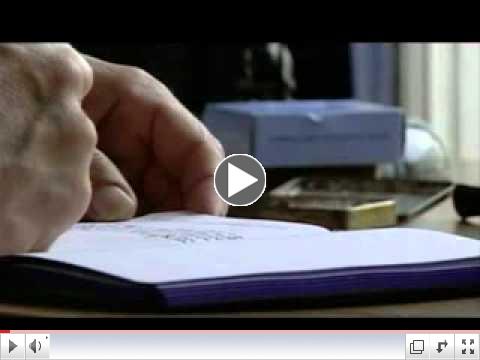Visit Our New 'Online University of the Left' and Be Amazed!

Check out the various departments, study guides and archives
|
Dialogue & Initiative 2012 The new annual edition of our journal of discussion and analysis is now out. More than 130 pages, it includes 13 articles related to the Occupy! movement, as well as seven others vital to study in this election year. Cost is $10 plus shipping. Or get one by becoming a new member or sustainer. Click the title to buy it directly.
|
Lost Writings of SDS..
Revolutionary Youth the the New Working Class: The Praxis Papers, the Port Authority Statement, the RYM Documents and other Lost Writings of SDS
Edited by Carl Davidson 
Changemaker, 273pp, $22.50
For the full contents, click the link and view 'Preview' under the cover graphic.
|
|
By Randy Shannon, CCDS

"Everyone has the right to work, to free of employment, to just and favorable conditions of work and to protection against unemployment."
- United Nations Universal Declaration of Human Rights, December 10, 1948
I. Introduction
The "Great Recession" that began in 2007 has caused the greatest percent of job losses since the Great Depression of 1929. This crisis is the end of an era of unrestrained 'neo-liberal' capitalism that became public policy during the Reagan administration. The crisis marks a new level of instability with the growth of a global financial elite that targeted US workers and our trade unions after World War II.
|
|
Order Our
Full Employment Booklets
 |
...In a new and updated 2nd Edition
Capitalism may well collapse under its own excesses, but what would one propose to replace it? Margaret Thatcher's mantra was TINA...There Is No Alternative. David Schweickart's vision of "Economic Democracy" proposes a serious alternative. Even more fundamentally, it opens the door to thinking about alternatives. His may or may not turn out to be the definitive "successor system," but he is a leader in breaking out of the box. |
|
Quick Links...
CCDS Discussion |
Sex and the Automobile in the Jazz Age

By Peter Ling in History Today: 'Brothels on wheels' thundered the moralists but Peter Ling argues the advent of mass motoring in the 1920s was only one of the changes in social and group relationships that made easier the pursuit of carnal desire.
|
Carl Davidson's Latest Book:
New Paths to Socialism

Essays on Mondragon, Marx, Gramsci and the Green and Solidarity Economies |
Solidarity Economy:What It's All About

Edited by Jenna Allard, Carl Davidson and Julie Matthaei
Buy it here...
|
|
|
|
An Invitation to CCDSers and Friends...
 Vets & Labor Up Front in NATO/G8 Protests!
We're the Committees of Correspondence for Democracy and Socialism...Do you have friends who should see this? Pass it on...Do you have a blog of your own? Others you love to read every day? Well, this is a place where you can share access to them with the rest of your comrades. Just pick your greatest hits for the week and send them to us at carld717@gmail.com!
Most of all, it's urgent that you oppose austerity, make solidarity with the Occupy! movement and end the wars! We're doing more than ever, and have big plans. So pay your dues, make a donation and become a sustainer. Do it Now! Check the link at the bottom...
|
'No Nato, No War!' US Veterans of Iraq
& Afghanistan Return Medals at NATO Summit
 | | "No NATO, No War": U.S. Veterans of Iraq and Afghanistan Return War Medals at NATO Summit |
Report from Democracy Now!
AMY GOODMAN: We're broadcasting from Chicago, site of the largest NATO summit in the organization's 63-year history. While delegates from 60 nations are meeting in the heavily secured McCormick Place convention center, thousands of antiwar protesters have been in the streets.
On Sunday, protesters marched from Grant Park to near the NATO summit. The march marked the largest protest in a week-long series of actions against the NATO summit. The march was led by veterans of the Iraq and Afghanistan wars as well as members of Afghans for Peace. At the end of the march, Iraq Veterans Against the War held a ceremony where more than 40 veterans discarded their war medals by hurling them in the direction of the NATO summit. Vietnam Veterans staged a similar protest outside the U.S. Capitol in 1971.
On Sunday-former U.S. Army Sergeant Alejandro Villatoro served during the Iraq 2003 invasion and in Afghanistan in 2011.
ASH WOOLSON: No NATO, no war!
VETERANS: No NATO, no war!
ASH WOOLSON: We don't work for you no more!
VETERANS: We don't work for you no more!
ASH WOOLSON: N-A-T-O!
VETERANS: N-A-T-O!
ASH WOOLSON: We don't kill for you no more!
VETERANS: We don't kill for you no more!
ALEJANDRO VILLATORO: At this time, one by one, veterans of the wars of NATO will walk up on stage. They will tell us why they chose to return their medals to NATO. I urge you to honor them by listening to their stories. Nowhere else will you hear from so many who fought these wars about their journey from fighting a war to demanding peace. Some of us killed innocents. Some of us helped in continuing these wars from home. Some of us watched our friends die. Some of us are not here, because we took our own lives. We did not get the care promised to us by our government. All of us watched failed policies turn into bloodshed. Listen to us, hear us, and think: was any of this worth it?
CROWD: No!
ALEJANDRO VILLATORO: Do these medals thank us for a job well done?
CROWD: No!
ALEJANDRO VILLATORO: Do they mask lies, corruption, and abuse of young men and women who swore to defend their country?
CROWD: Yes!
ALEJANDRO VILLATORO: We tear off this mask. Hear us.
IRIS FELICIANO: My name is Iris Feliciano. I served in the Marine Corps. And in January of 2002, I deployed in support of Operation Enduring Freedom. And I want to tell the folks behind us, in these enclosed walls, where they build more policies based on lies and fear, that we no longer stand for them. We no longer stand for their lies, their failed policies and these unjust wars. Bring our troops home and end the war now. They can have these back.... (Click title for more)
|
|
Nurses in Chicago NATO/G8 Protests Demanding 'Robin Hood' Financial Transaction Tax on Wall St

National Nurses United: Linking Global Struggle With Successful Organizing in Difficult Places
By Sandy Eaton, RN
CCDSLinks
National Nurses United, the two-year-old national union of registered nurses, called on its members and all their allies to Come Together to Heal the World in Chicago on May 18th. This marks the latest phase in the union's campaign for a Financial Transaction Tax, the "Robin Hood Tax," which began outside the US Chamber of Commerce on Lafayette Park last June and quickly spread to Wall Street and beyond.
NNU's annual Staff Nurse Assembly this year bypassed Capitol Hill, its usual venue, for Chicago, the original site of the G8-NATO summit. Having sent a strong delegation to Cannes last December to target the G20 while rallying in cities across the US at the same time, the nurses seized this opportunity to advance the fight for a 0.5% tax on stock trading and other transactions in order to garner up to $350 billion per year to create jobs and meet human needs. More than 100 organizations of community, environmental, labor and health groups from around the world endorsed the event. ...(Click title for more)
|
"Hey Hey. Ho Ho! Rahm Emanuel Has Got To Go!

Thousands of Chicago Teachers Union members march up Michigan Avenue to CPS Headquarters after a rally at the Auditorium Theatre.
By Mike Klonsky
Small Talk Blog
That was the thunderous sound of 5,000 red-clad Chicago union teachers marching past CPS headquarters at Adams & Clark. Just when Rahm thought is was safe to come out of his office after last weekend's NATO Summit fiasco, he once again became the target of working class venom. Speaker after speaker denounced Rahm's ongoing war on teachers. His contract offer was denounced as an "insult." On every issue, they offered counters to his "reform" agenda of privatization, charter schools, longer school day,and test-based teacher evaluation.
According to Sun-Times reporters:
"The teachers had rocked the city's Auditorium Theater with chants, cheers and jeers during a Wednesday afternoon rally to rev up the troops against a contract proposal union leaders derided as an "insult." Dressed in red CTU t-shirts, teachers and other school workers turned the theater and three of its balconies into a sea of hopping, clapping red. "Definitely teachers are mad enough to strike," said Prosser High School teacher Jennifer Koszyk. "I'm mad for my children. I want to make sure they get the same education as other children get in Illinois."
Outside, at the support rally UIC Prof David Stovall mocked Emanuel, asking the crowd, "any paid protesters out there? The response was a loud and joyful, "hell, no!"
After more than 4,000 CTU members poured out of the Congress Theater, they were joined by rallying supporters across the street in Grant Park, with the groups merging into a sea of red-shirted marchers. As they proceeded up Michigan Ave. and then west on Adams, they were greeted with signs of support from onlookers -- a group of custodians, some medical techs, hard-hatted construction workers and retail clerks. Even the mayor's bike cops, many of whom had been used against the anti-NATO demonstrators on Saturday, now were wearing CTU buttons and posing for pictures hugging union marchers.
As the current negotiations move into high gear, Rahm would do well not to underestimate the level of solidarity and commitment on the part of the teachers. I didn't find any who wanted a strike. But neither did I find any who weren't ready to walk if pushed to the wall.
|
Jean-Paul Sartre: The Road To Freedom
 | Jean Paul Sartre: The Road to Freedom
BBC Documentary in 45 Minutes
|
|
Why a Growing Movement of Young
People Could Ignite a Workers' Revolution

'What Labor Looks Like: From Wisconsin to Cairo, Youth Hold a Mirror to History of Workers' Struggles' originally appeared in Labor Rising: The Past and Future of Working People in America edited by Daniel Katz and Richard A. Greenwald, published by The New Press. Reprinted here with permission.
By Michelle Chen
The New Press
Every revolution needs two essential ingredients: young people, who are willing to dream, and poor people, who have nothing to lose.
Yet the social forces that make movements strong also incline them toward self-destruction. Hence, over the past few decades, uneasy intergenerational alliances have melted away as impatient young radicals bridle against the old guard of incumbent left movements.
At the same time, when it comes to organizing, without patronizing, poor folks, activists continually struggle just to find the right language to talk about systemic poverty in a sanitized political arena that has largely been wrung dry of real class consciousness.
Today, of course, activists tend to speak eagerly about reaching out to "the youth," or of overcoming cultural rifts between middle class professional organizers and the workers they seek to transform into the next vanguard. But the activism stemming from the recent economic crisis proves not only that the left could use some serious tactical upgrading and fresh blood, but also that movements cannot overturn entrenched social fault lines by sheer force of will.
Like any embattled community that needs to rebuild, shepherding activism into the next generation requires that established organizers learn how to retire gracefully, that those moving onto the front lines learn how to temper urgency with patience-and that all sides recognize that there are things they don't know.
In Wisconsin in February 2011, no one knew what would happen as they gathered at the state capitol. A few picket signs, a megaphone or two, maybe a well-orchestrated sit-in until getting politely marched off by cops. But soon, the optics defied just about everyone's expectations. Middle-aged school teachers might have done a double take when they saw teenagers detour from their weekly mall trips to join the picket lines; sanitation workers who traveled to the statehouse with their union colleagues probably didn't anticipate marching alongside young Hmong community activists. The biggest surprise about turnout was the very absence of a defining image: there was no single movement or ideological agenda, no figurehead at the helm of the crowd. The only message emanating from the masses during those days was simply "No." No to a draconian piece of legislation that threatened a basic labor right that many workers had either forgotten or taken for granted, until it had been threatened with extinction....(Click title for more)
|
The Taft-Hartley Act: 'Neutrality'
as a Weapon Against Workers
 By Pete Dolack By Pete Dolack
Systemic Disorder
May 23, 2012 - One of the primary tools long used to suppress labor in the United States is the Taft-Hartley Act, which became law 65 years ago next month. Specifically written to reduce the organizing power of working people to the maximum extent reasonably possible, it is sometimes overlooked that the law was passed with Democratic Party as well as Republican support.
Working people had won for themselves powerful gains during the dramatic upsurge of union organizing during the latter years of the Great Depression, and after agreeing to not conduct strikes during World War II, unions were again flexing their muscles so that their members could make up some of what was lost from the war's pay freezes. In response, U.S. Big Business interests saw their first opportunity to begin the dismantling of the New Deal, implemented by Franklin Delano Roosevelt in response to massive unrest that threatened to topple the capitalist system.
Prior to the New Deal, employees had virtually no recognized rights; the struggle of workers to unionize to defend themselves against powerful corporate interests had raged for decades. Strikes would be met with mass firings and shootings by law enforcement authorities and private security forces. New Deal labor law was codified in the National Labor Relations Act of 1935, also known as the Wagner Act. A historian at Missouri Southern State University, Steven Wagner, in an article posted on the George Mason University History News Network, emphasizes the importance of the act:
"The Wagner Act was the most important labor law in American history. It gave a major impetus to labor organizations and earned the nickname "labor's bill of rights." ... It gave workers the right to organize and join labor unions, to bargain collectively through representatives of their own choosing, and to strike. It also set up the National Labor Relations Board (NLRB), an independent federal agency with three members appointed by the president, to administer the act and gave it the power to certify that a union represented a particular group of employees.
The Wagner Act also forbade employers from engaging in five types of labor practices: interfering with or restraining employees exercising their right to organize and bargain collectively; attempting to dominate or influence a labor union; refusing to bargain collectively and in "good faith" with unions representing their employees; and, finally, encouraging or discouraging union membership through any special conditions of employment or through discrimination against union or non-union members in hiring. This last provision, in effect, permitted closed and union shops (a closed shop is when an employer agrees to hire only union members and a union shop is when an employer agrees to require anyone hired to join the union)."
Following the conclusion of World War II, a wave of strikes commenced. The U.S. government's Department of Labor history page notes that, in contrast to fears that massive unemployment would result from the millions of veterans returning from the war,
"[T]he real labor problem of the time was a massive if peaceful wave of strikes. Unions sought to make what they considered well-deserved gains after enduring wage freezes imposed during the war. Workers were also prodded by the sharp inflation, fueled by pent-up consumer demand, that followed the lifting of wartime price restrictions. Strike followed upon strike in such important sectors as railroads, coal, steel, autos and oil."
A combination of the Red Scare, whipped-up anti-union sentiment, and a desire by capitalists to reverse the gains of the New Deal and to purge the unions of communists and socialists, who often were the most militant union leaders, led to the introduction of numerous anti-union bills in Congress. The effort came to center on a pair of bills, one for each congressional house. According to a history of Taft-Hartley on the Labor Party USA web site:...(Click title for more)
|
Farewell to Robin Gibb and Donna Summer
From Rolling Stone
Saturday Night Fever is the high-water mark of the disco movement, and the Bee Gees' "Stayin' Alive" is the high-water mark of Saturday Night Fever. The band's most iconic hit is forever associated with disco's biggest cultural moment, and it's probably one of the first songs that comes to mind when anyone thinks of disco in general.
![Bee Gees - Stayin' Alive [Version 1] (Video)](https://thumbnail.constantcontact.com/remoting/v1/vthumb/YOUTUBE/0acee5d49b3c4cf9a8de027f74b3756d) | | Bee Gees - Stayin' Alive [Version 1] (Video) |
Donna Summer's most famous songs with producer Giorgio Moroder veered off course from typical disco sounds and textures, but their 1978 hit "Last Dance" is pure disco bliss, with glorious high-hats and orchestration that took the sound of the day and pushed it further toward perfection.
 | | Donna Summer Last Dance |
|
The Program of Germany's 'Die Linke'
(The Left) Now Available in English

Preamble: What DIE LINKE Stands For:
DIE LINKE as a socialist party stands for alternatives, for a better future.
We democratic socialists, the democratic left with different political biographies, ideological and religious influences, women and men, old and young, established and immigrants, people with and without disabilities, have come together in a new left party. We cling to the dream of mankind that a better world is possible.
We are not and will not be like those parties that obsequiously submit to the wishes of the economically powerful and for that very reason can scarcely be told apart. We pursue a concrete goal: we fight for a society in which no child has to grow up poor, in which all men and women can live a self-determined life in peace, dignity and social security and can democratically shape social relations. To achieve this we need a different economic and social system: democratic socialism. We want to use the grandiose ideas, the visions and creative forces of men and women for convincing political projects,to overcome hunger and poverty, to get the consequences of climate change and environmental disasters under control.
We are not prepared to accept a world in which profit interests determine the prospects of millions of men and women and in which exploitation, war and imperialism cut whole countries off from hope and the future. Where profit rules above all else, there is little space for democracy. The untrammelled freedom of the big corporations means bondage for the majority of men and women...(Click title for more)
|
|
Become a CCDS member today!
 The
time is long past for 'Lone Rangers'. Being a socialist by your self is
no fun and doesn't help much. Join CCDS today--$36 regular, $48
household and $18 youth. The
time is long past for 'Lone Rangers'. Being a socialist by your self is
no fun and doesn't help much. Join CCDS today--$36 regular, $48
household and $18 youth.
Better yet, beome a sustainer at $20 per month,
and we'll send you a copy of Jack O'Dell's new book, 'Climbing Jacobs
Ladder,' drawing on the lessons of the movement in the South in the
1950s and 1960s.
Solidarity, Carl Davidson, CCDS |
|
|